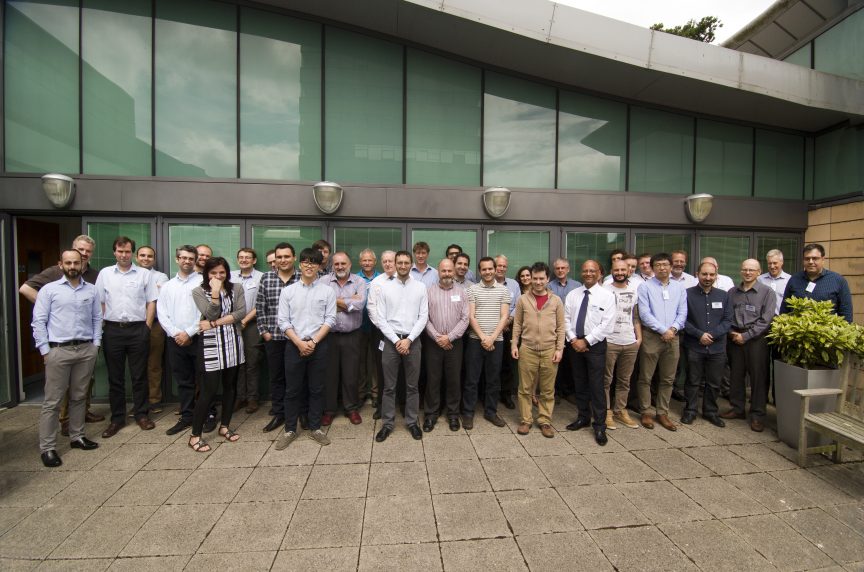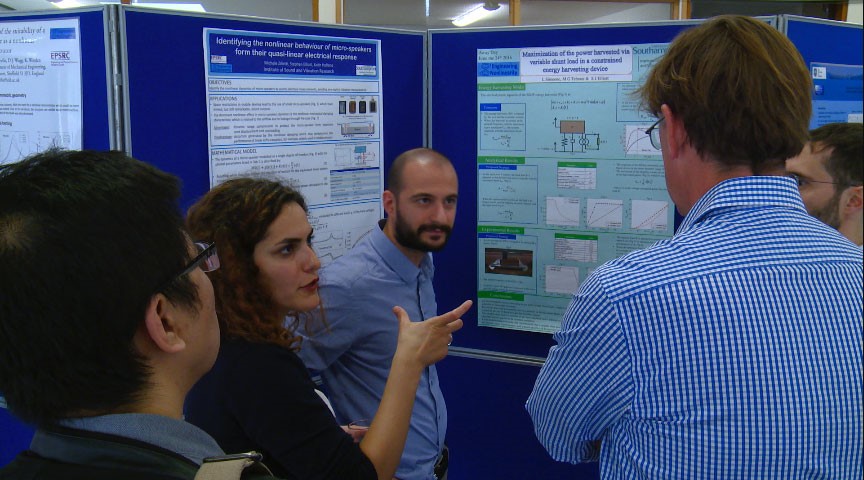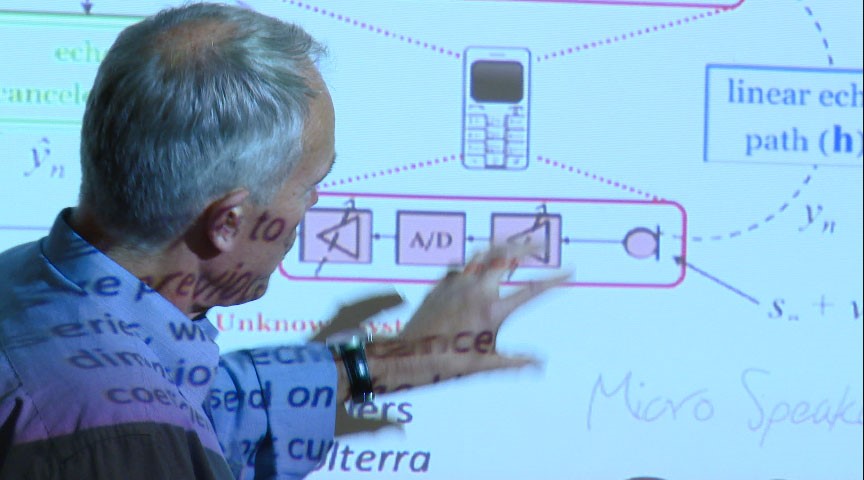
Delegates at the Engineering Nonlinearity 4th Annual Review 6-8 July 2016
The Engineering Nonlinearity 4th Annual Review Meeting took place in Southampton on 6-8 July 2016. The University of Southampton played host to over 50 attendees over the three days from the project’s academic and industrial partners, and the Steering Committee including Andreas Kontogeorgos of the EPSRC.

ENL Networking and Poster Session at 4th Annual Review
Proceedings opened on the evening of the 6th July with a networking and poster session at the Garden Court, where posters were presented by all researchers funded by the project, also associated researchers and PhD students. This was an excellent opportunity for the researchers and students to present their developments, and for everyone on the project to catch-up in person. The proceeding were captured by Maniac Films, who would also be interviewing key project members and selected talks the following day. Following the poster session, many delegates repaired to the adjacent famous Southampton Students’ Union Bar; scene of famous early concerts by Led Zeppelin and The Who; to watch Wales’ valiant efforts in the 2016 Euro Football championships being finally laid to rest by eventual tournament winners Portugal, who discovered 5 minutes of brilliance to guide them to their first and only win in real time in the tournament.
For Day 2 the delegates moved to the Institute of Sound Vibration and Research (ISVR), where proceedings were opened by Principal Investigator, Prof. David Wagg, who formally welcomed everyone to the meeting, before handing over to Prof. Tim Leighton of the University of Southampton for a fascinating keynote presentation on his research and product development work involving nonlinear bubbles for cleaning applications. Prof. Wagg then continued with an overview of progress on the Engineering Nonlinearity project, reviewing project aims and objectives and overall progress; progress on a conceptual framework for nonlinear models, and conducting a brief tour through the five ENL themes. One notable feature has been the great success of people employed by or associated with ENL in securing prestigious academic positions. Prof. Wagg also thanked Sanjiv Sharma of Airbus for taking on the role of Steering Committee chair from Prof. David Ewins, who had stood down following his retirement from the University of Bristol. The rest of the day was then taken up with reports led by the five ENL theme leaders as follows:
Theme 1 – System Identification, led by Prof. Keith Worden
Theme 2 – Random Vibration, led by Prof. Robin Langley
Theme 3 – Nonlinear modal analysis and testing, led by Profs Jonathan Cooper and Simon Neild
Theme 4 – Bifurcation Analysis, led by Profs Alan Champneys and Mike Friswell
Theme 5 – Active Control, led by Prof. Steve Elliott

Prof. Steve Elliott presents developments from Theme 5, Active Control
Good progress was noted across all themes, and, as would be expected at this stage of the project, many ongoing collaborations and potential areas of academic and industrial impact arising from the work.
Following a group photo, discussions continued into the evening at Cowherds restaurant.
Day three began with Prof Wagg introducing a keynote lecture from Nigel Taylor of Jaguar Landrover, who gave an excellent presentation noting how the company gained maximum benefit by balancing developments from advanced modelling techniques with ball-park order of magnitude calculations, to drastically reduce or potentially negate the need for physical testing during product development. Andreas Kontogeorgos, the EPSRC contact for the project, then gave an update from his organisation. Prof. Wagg then continued with updates on progress with the project milestones and the ongoing project programme to the end in September 2017, which were all to plan, and the project finances. Prof. Wagg noted that over the past year 25 papers related to ENL had been published or were in press and 29 conference papers, with more in preparation. Prof. Wagg then announced the winner of the Poster Prize as Milind Pandit of the University of Cambridge, before bringing the main part of the meeting to a close.
The Steering and Management Committees then met concurrently, joining together afterwards for a feedback discussion and closing session. While the committees were meeting, those not involved met with their relevant Technical Working Groups.